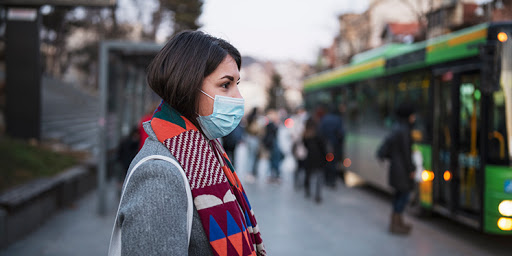This website uses cookies to improve your experience. We'll assume you're ok with this, but you can opt-out if you wish. Read more
Coronavirus DK: Denmark finally recommends masks
Coronavirus DK: Denmark finally recommends masks
The Danish Health Authority is now recommending the use of face masks (DK) for the first time, but only in selected situations. The agency updated its guidelines on Thursday with this announcement: “People can use face masks for short periods in special situations in order to protect others from the coronavirus.” It is thus not recommending that everyone wear masks, that people wear them in all situations, or that people wear them in order to protect themselves. The announcement cites the change in the WHO’s guidelines last month to recommend the use of masks in certain situations on the basis of new knowledge about the spread of the infection.
The Authority advises that masks be used in situations where you cannot follow the general recommendations, on social distancing for example. They are most important for people who are infected, who have symptoms, or who have been exposed to someone who might be infected.

These are the situations:
- You are infected or have symptoms and must leave isolation in order to travel to or from a hospital.
- You are returning home from traveling to a high-risk country and must undergo self-isolation.
- You are in close contact with someone who is infected and must break self-isolation in order to transport you to a test.
- You are related to a person with elevated risk and cannot maintain physical distance, for example because you must care for the person.
The Authority stresses that it is crucial to wear masks correctly, to follow good hand hygiene when putting them on, to change them after every use, and to have a good supply if you need to wear them.
“Masks must be seen as an extra tool in the workbox,” the announcement concludes. “There are other, more effective tools, for example self-isolation if you are sick, keeping 1 meter’s distance, and adhering to good hygiene.” The Authority has produced a folder and a poster (DK) on the correct use of masks.
Tracing app is spreading
On June 18, the Ministry of Health released the Smittestop app, which is intended to monitor the spread of coronavirus and warn people who come into proximity of it. It has now been downloaded 745,000 times (DK), and people have registered their infection 112 times. The Ministry did not disclose the number of notifications.
According to researchers, the number of downloads is satisfactory and the number of infections registered is not so low considering Denmark’s low reproduction rate, but they hope to see more downloads. They are preparing models based on the spread of the virus that the government can use to determine what to keep open and closed in society and the economy. “If there is a new outbreak, we can make fewer interventions if the app is in widespread use,” says Jacob Stoustrup, Professor at the Institute for Electronic Systems at Aalborg University.
As described in an earlier post, when you are in close proximity for 15 minutes with someone who is registered as positive for the virus, the app sends you a notification. The notification does not include the name of the infected person, and the data are encrypted, anonymous and stored only on individual phones. Researchers would prefer having more data available but acknowledge the need for privacy.
Not everyone can download the app. It requires a phone with Android 6.0 or iOS 13.5.


